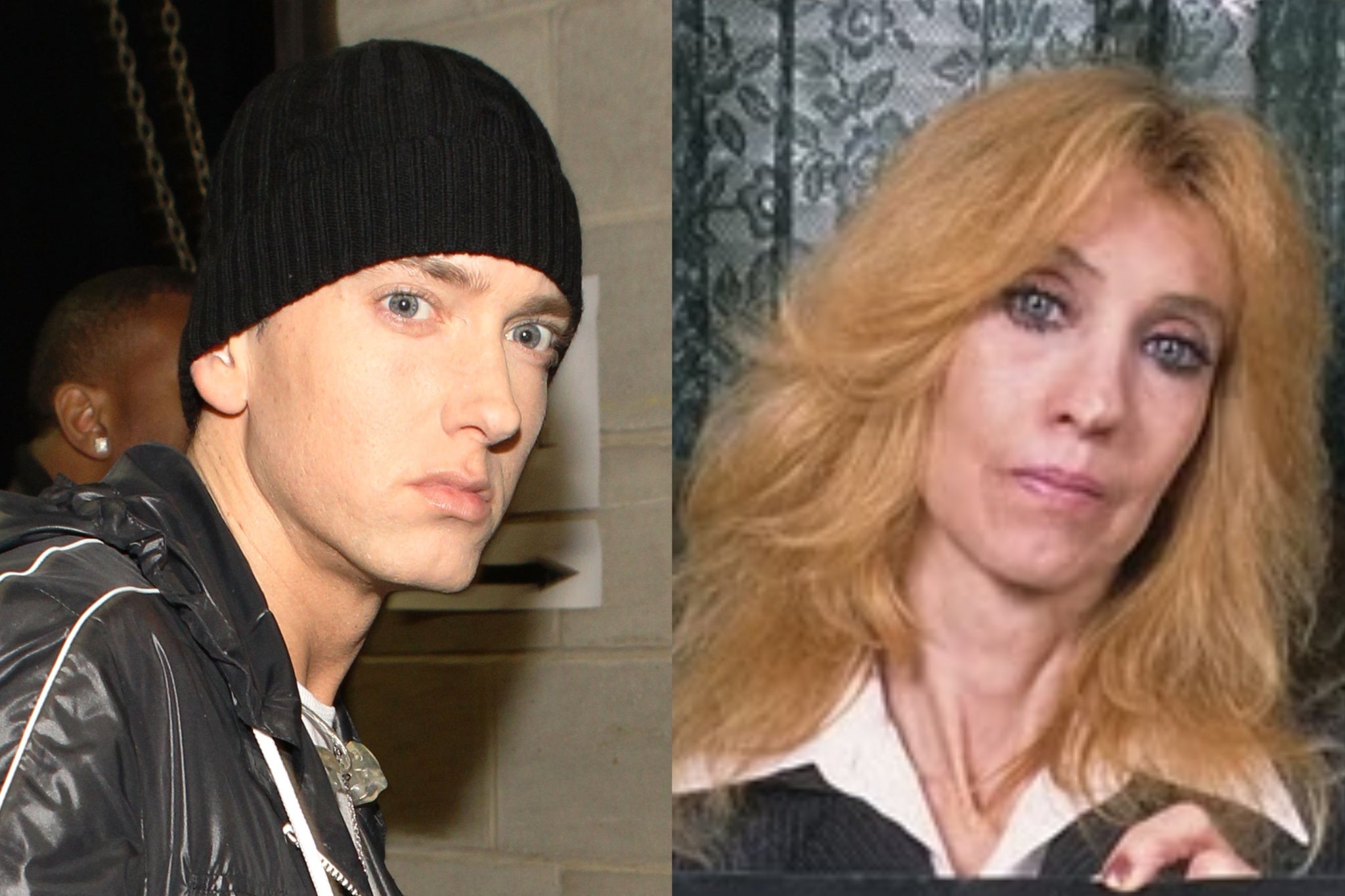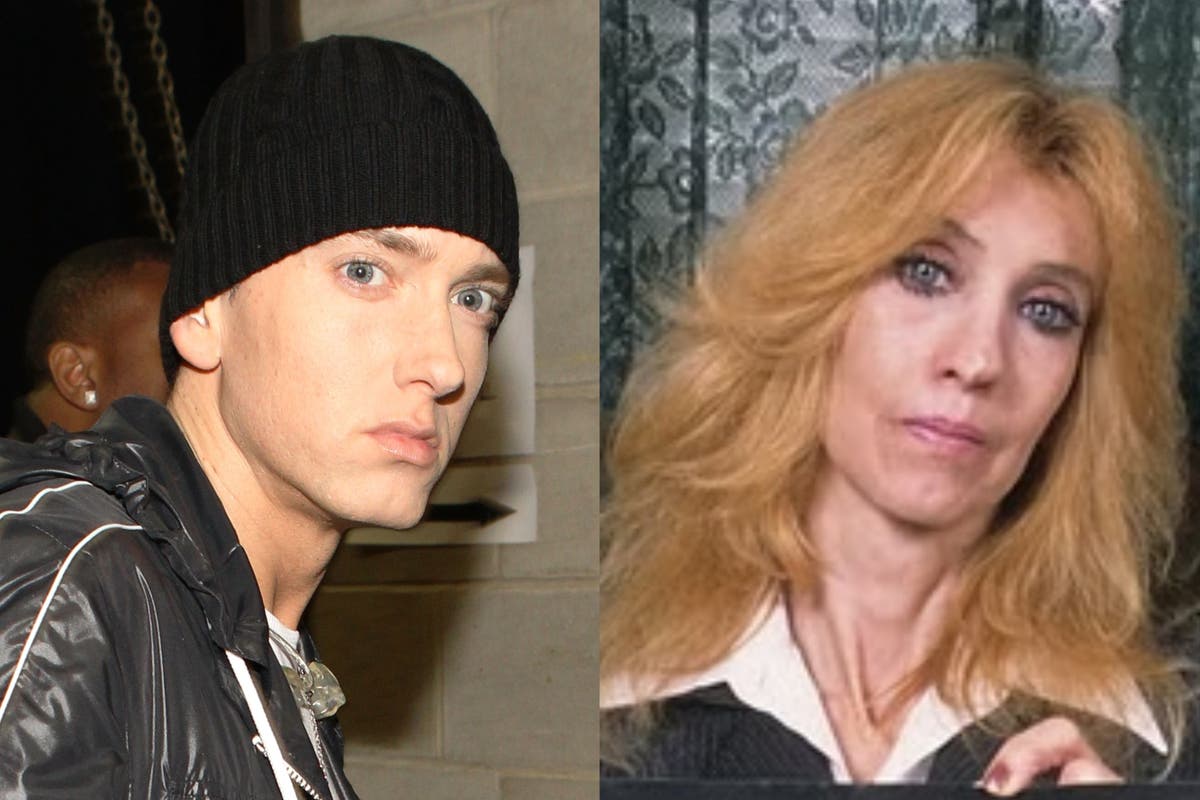For Eminem fans, the death of the rapper’s mother Debbie Nelson at the age of 69 marks the end of an era.
She was a familiar figure in his lyrics dating back to some of his earliest releases, although she disputed in court her frequent portrayal as a drug-addled and unstable influence on her son’s life.
On “My Name Is,” the lead single for his breakthrough 1999 album The Slim Shady LP, Eminem — whose real name is Marshall Mathers — rapped: “I just found out my mom does more dope than I do / I told her I’d grow up to be a famous rapper / Make a record about doin’ drugs and name it after her.”
The success of The Slim Shady LP quickly helped achieved Eminem achieve his aim of becoming a “famous rapper.” The album sold 283,000 copies in its first week of sale alone, catapulting its creator from the status of underground rap star to pop culture celebrity.
That rapid rise to fame also shone a spotlight on his mother, then known as Debbie Mathers, with fans speculating about the reality of her substance abuse issues. In September 1999, she brought a lawsuit against her son, claiming that he had defamed her in the lyrics of “My Name Is” and in multiple interviews surrounding the release of the album. She asked for $10 million in damages, although in 2001 the case was settled for just $25,000, with the judge ordering that $23,354 go to her former attorney’s legal fees, leaving Nelson with a mere $1,646.
While that case was still dragging through the legal system Nelson was approached by rap group Identity Unknown, also known as ID-X, to respond to Eminem’s allegations about her in song. The resulting single “Set The Record Straight,” sometimes known as “Dear Marshall,” featured clips of Nelson telling her son to take “responsibility for your own life.”

After the legal case was settled, Eminem responded to the lawsuit — and his mother’s song about him — in perhaps his most famous song about her, 2002’s “Cleanin’ Out My Closet.” The track’s refrain repeats: “I’m sorry, Mama / I never meant to hurt you / I never meant to make you cry / But tonight I’m cleanin’ out my closet.”
In the verses, Eminem hits back at his mother’s suggestion that he exaggerated her treatment of him as a child to advance his career, saying: “Now, I would never diss my own mama just to get recognition.” He goes on to recall “witnessin’ [my] mama poppin’ prescription pills in the kitchen” and accuses her of purposely making him ill, saying he was a “victim of Münchausen’s Syndrome / My whole life I was made to believe I was sick when I wasn’t.”
He directly references her song “Set The Record Straight”, saying: “Wasn’t it the reason you made that CD for me, Ma? So you could try to justify the way you treated me, Ma?” He goes on to taunt her by telling her she’ll never meet his daughter Hailie, rapping: “And Hailie’s gettin’ so big now, you should see her, she’s beautiful / But you’ll never see her, she won’t even be at your funeral (Ha-ha!).”
Enjoy unlimited access to 100 million ad-free songs and podcasts with Amazon Music
Sign up now for a 4 month free trial (3 months for non-Prime members)
Enjoy unlimited access to 100 million ad-free songs and podcasts with Amazon Music
Sign up now for a 4 month free trial (3 months for non-Prime members)
In 2009, Eminem made good on the promise he’d made a decade earlier by recording a record about drugs and naming it after his mother. “My Mom,” from his sixth album Relapse, featured further accusations about how his mother drugged him while he was still a child. “This is just a story of when I was just a shorty,” raps Eminem. “And how I became hooked on Va-aliu-um / Valium was in everything, food that I ate / The water that I drank, fuckin’ peas in my plate / She sprinkled just enough of it to season my steak / So every day I’d have at least three stomachaches.”
By 2013’s The Marshall Mathers LP 2, however, Eminem had been through his own struggles with addiction and was more forgiving towards his mother. On the album’s penultimate track, “Headlights”, he makes reference to his earlier songs about her as he raps: “I went in headfirst, never thinkin’ about who what I said hurt / In what verse, my mom probably got it the worst / The brunt of it, but as stubborn as we are, did I take it too far? / ‘Cleanin’ Out My Closet’ and all them other songs/ But regardless, I don’t hate you ‘cause, Ma / You’re still beautiful to me, ‘cause you’re my mom.”

